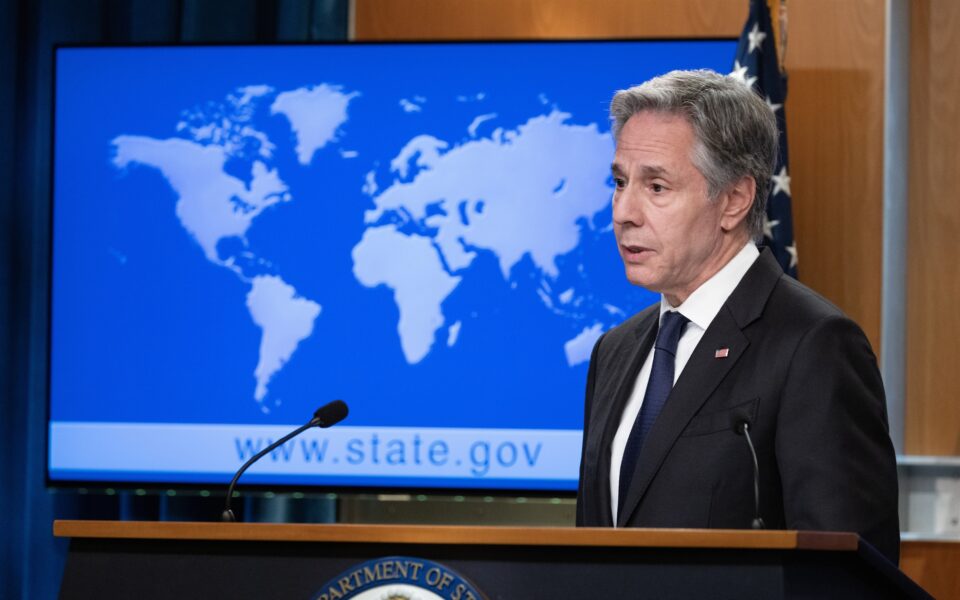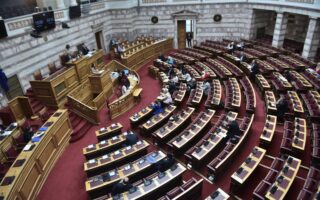It’s all about reputation

Do we care what foreigners think of Greece, no matter their position or relationship to this country? Of course we do – and so we should, for the very simple reason that all we’ve got is our reputation. And that reputation has nothing to do with the so-called “brand name” that everyone is on about nowadays; it is something that is much more sensitive and runs much deeper than that. Just as we cared what foreign historians and travelers were writing about the 1821 Greek War of Independence, for example – because their pages contained not just paeans but also criticism that was so important to the task of national self-awareness – so we still care what foreigners have to say about us today in their newspapers and magazines. What they claim in their official reports and what their TV stations are broadcasting, but also what they are posting on social media. We care, and we should care, about what official and unofficial foreigners say about the people of this country, the simple and not so simple folks, the old-timers and youngsters, the governing and the governed. What do they think of our roads, our cuisine, the ferry boats that take them to our islands, our cab drivers, our public transport and mass media, our hospitals and fire protection measures, our airports, bars and tavernas? They are our judges, not us. We are biased, just as every nation is biased in its own favor.
What foreigners have to say about us, both now and about the years before, has a certain quality that we are genetically unable to produce on our own. No matter how strict we want to believe ourselves to be with our country, we can never sever all the emotional ties that bind us to it, ties that even allow us to overlook the country’s gravest faults. Similarly, foreigners and those with deeper philhellenic instincts will never be able to identify with our country so completely that their own background and way of thinking is erased. Their point of view will always be that of the outsider, even if they live – and even die – here.
But we need to be fair with these foreigners and honest with ourselves, and this means paying equal attention to praise and criticism, to generous panegyrics and scornful satire, even to libelous attacks. It also means that we should be equally affected by the words of Westerners and those of other nations, which we have a tendency to lump together under rather derogatory labels. It means, ultimately, that the views of tourists do not count more than the views of migrants and refugees; they are not more valid. Quite the opposite, in fact.
Bias, however, has been taking us down a different path for years, one where we will only reproduce praise for the sake of some trite sense of national pride, where we overappreciate even the most obvious flattery dictated by “good manners” or the needs of diplomacy. A foreign dignitary, famous actor or athlete has but to utter a couple of words in Greek to send us into a state of ecstasy. On the other hand – on the pretext of protecting our national confidence – we have the bad habit of dismissing, silencing or vilifying anyone who is critical of our actions.
On the pretext of protecting our national confidence, we have the bad habit of dismissing, silencing or vilifying anyone who is critical of our actions
Has some influencer in the UK, France or Portugal included four Greek beaches among the best in the world? We can’t get enough of reporting on it. Is some tourist pouring out his grief for being expected to pay through the nose for a room that doesn’t live up to its glossy online presentation, where the sea view was only in a picture frame? He’s lying, obviously. He may even be an agent provocateur planted by the Turks.
Racism in Greece, of the Golden Dawn or some other variety? Of course not; it’s not in our genes. So many politicians have even said so. Such suggestions are scandalous lies, disseminated by Dutch journalists.
Slop served to tourists at our restaurants? Never! Greek hospitality would never allow it. But what can you do if the moussaka didn’t come out as good as usual? Throw it away? Dirty streets, dingy public squares and illegal garbage dumps all over the country, customarily as a welcome at the entrance to most cities and towns or in “protected areas”? Never, ever, ever. After so many fines paid to the European Union, we know better, as every mayor, community leader and regional governor tells us when running for office promising better sanitation and more recycling. And what if you see a scrap of plastic on the street or discarded food? It’s the immigrants littering or visitors from countries competing with Greece for tourism who are deliberately trying to hurt our image.
If that’s what we want to believe, that’s what it is. But, damn it, the entire universe can’t be in cahoots against us all the time, churning out plots by sundry Greek haters. The world was not created exclusively for the glory of the greatest of all the great nations: us.
What’s more, the conspiracy theories unmasking nefarious anti-Greek interests in the European Parliament, the US State Department, Amnesty International, the World Wildlife Fund, Doctors of the World, TikTok and Instagram of course, and anywhere else bad things are said about Greece are also propagated by the governments of this country, including the current New Democracy administration, in a bid to cleanse themselves of blame. This is, basically, how they perceive their obligation to listen to criticism, their obligation, in short, to account for themselves: by dismissing Amnesty International, the European Parliament and the State Department as lairs of anti-Greek sentiment when they give our democracy anything but top marks.





